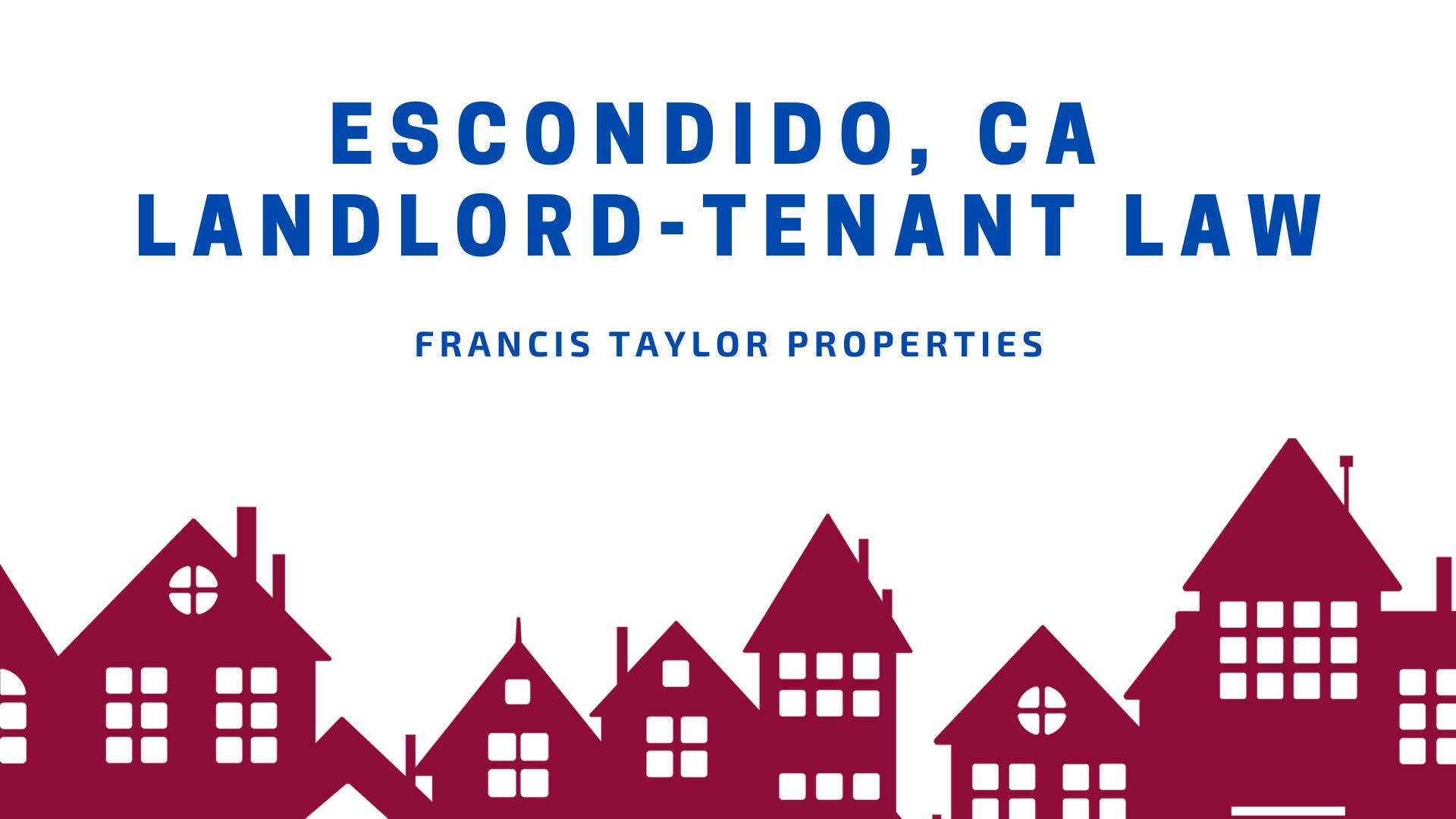California landlord tenant laws gives both parties to the lease certain rights and responsibilities. As a landlord, it’s crucial for landlords to familiarize themselves with this section of landlord tenant laws for a successful landlord experience for any rental properties.
The following information is an overview of what landlords need to know under the California landlord-tenant law, including anything that could be put in any lease or rental agreements.
Required Landlord Disclosures
Before a prospective tenant can move into the property or dwelling unit, state law requires that landlords provide them with certain mandatory information. Under the California landlord-tenant laws, the information includes:
Lead-based paint concentration. This is a mandatory requirement for every landlord who built their homes before 1978.
Written info about bed bugs. This applies regardless of whether the home is infested with bed bugs or not.
Documentation about any known mold.
How the utility fees will be divided up between tenants in a multi-family apartment.
Disclosure about the presence of asbestos. This is especially required of anyone renting out property built before 1979.
Disclosure on whether the property is located in a known flood zone.
Disclosure on whether landlords intend to make serious repairs in the future that can affect the unit’s habitability.
California Tenant Rights & Responsibilities
In California, the following are some of the rights tenants enjoy when inhabiting any rental units under the state’s rental law. A right to:
Live in a home that meets the state’s basic health and safety codes.
Be notified before landlord entry.
Enjoy the property in peace and quiet.
Continue living on the property until the landlord has followed the proper eviction channel.
Exercise certain legal rights without being retaliated against. For instance, a right to withhold rent payments when the landlord fails to fix serious problems within the rental unit.
The return of the security deposit within the required timeframe. Security deposits have a lot of regulations around them. As such, be sure to familiarize yourself with the procedures around security deposits and their returns to tenants, as well as the entirety of the California security deposit legislation.

The following is a list of the responsibilities that tenants must abide by when renting out property under the California landlord-tenant laws.
Keep the unit clean and sanitary at all times.
Maintain the unit’s habitability.
Use the property for the purposes it’s intended for.
Take care of small repairs and maintenance.
Respect the neighbors’ rights to peace and quiet.
Report maintenance issues to the landlord within a reasonable time.
Serve the landlord with proper notice before terminating a periodic lease.
Landlord Rights & Responsibilities
The following are some of the rights that each landlord has under California landlord-tenant law. A right to:
Enter the rented premises to carry out important obligations, such as inspecting the unit or responding to maintenance concerns.
Evict the tenant for committing a lease violation.
Proper notification from a tenant who wishes to leave town for an extended period.
Make appropriate deductions to the tenant’s security deposit for legitimate reasons.
Screen tenants before allowing them to sign the lease agreement. The process, however, must abide by the state’s fair housing laws.
Raise a tenant's rent in accordance with state law.
The following is the list of responsibilities landlords in California have under the law.
Abide by the state’s eviction process when evicting a tenant for lease violations, such as failing to pay rent, by doing things like giving an eviction notice.
Follow the security deposit laws as outlined by the state.
Make repairs promptly after being notified.
Abide by the state’s anti-discrimination laws.
Maintain peace and quiet.
Maintain the unit to the required habitability standards.
An Overview of the Landlord-Tenant Laws
1. Privacy Laws
The local legislation require California landlords to abide by certain rules when entering their tenants’ rented units. For one, landlords must have a legitimate reason for entry but they don't need a written notice. As your California property managers, we'd take care of this to avoid any landlord-tenant issues.

Such reasons include the following.
Under court orders.
In the event of an emergency.
When responding to maintenance issues.
To show the unit to prospective tenants or buyers.
Landlords must also provide the tenant with proper notification before making the scheduled entry. Specifically, you must give the tenant 24 hours’ advance notice. This notice must be in writing.
California landlords, however, don’t need to provide an advance notice when responding to an emergency.
Finally, landlords may only enter the rented unit within normal business hours.
2. Maintenance & Repairs
As a landlord, you have a duty to keep the rental unit habitable. The following are some of the characteristics that the property must meet to comply with California’s “Implied Warranty of Habitability.”
Properly functioning locks.
Safe floors, stairways, and railings.
Running water.
Proper electrical, plumbing, and heating facilities.
Proper weatherproofing of the walls, roof, and windows.
3. Housing Discrimination Laws
Each California tenant has a right to be treated fairly and equally as per federal and state fair housing rules. The Federal Fair Housing Act protects tenants against discrimination by landlords on the basis of 7 protected classes.
The classes are: race, color, religion, nationality, gender, disability, and familial status.
California law also extends further protections a tenant on the basis of sexual orientation, primary language, military and veteran status, gender identity/expression, mental disability, citizenship status, ancestry, and source of income.
4. Security Deposit
A California landlord has a right to charge tenants a security deposit as part of the initial move-in costs. Landlords must, however, ensure that they abide by certain rules when doing so.

Among other things, landlords must:
Charge tenants a deposit not exceeding the equivalent of two months’ rent for unfurnished units.
Only make legitimate deductions to the tenant’s deposit. For example, due to unpaid rent, or to fix damage not included in normal wear and tear.
Return the deposit to the tenant, less allowable deductions, within 21 days.
5. Rent Increase
Unfortunately for landlords, California has implemented rent control regulations that allow local jurisdictions to establish their own rent control laws under the California Tenant Protection Act. This means that landlords must navigate a complex landscape of rent regulations that can vary significantly from one area to another.
Before attempting to raise rent on any property, it’s essential to thoroughly review both state and local laws to ensure compliance. Understanding these rent control restrictions not only helps the California landlord avoid penalties but also allows them to make informed decisions about potential rent adjustments in the future.
The following are some of the things a landlord should know when raising rent on residential tenants:
The percentage rent increment depends on the annual inflation rate so that a tenant is able to pay rent.
You can only raise rent once every year.
You cannot raise rent during a fixed-term lease unless there is a provision in the rental agreement that allows for such an increase.
You must provide the tenant with a 30 days’ advance notice prior to raising the rent on the lease or rental agreement.
Conclusion
When renting out a property in California, it’s important to familiarize yourself with the state’s rental law. This way, you’ll be able to better discharge your duties and have an overall good relationship with the tenant.
If you are a landlord and still need expert help with managing your rental property, Francis Taylor Properties can help. Get in touch to learn more!
Disclaimer: Please note that the information provided in this blog is intended for general guidance and should not be considered as a replacement for professional legal advice. It is important to be aware that laws pertaining to property management may change, rendering this information outdated by the time you read it.



